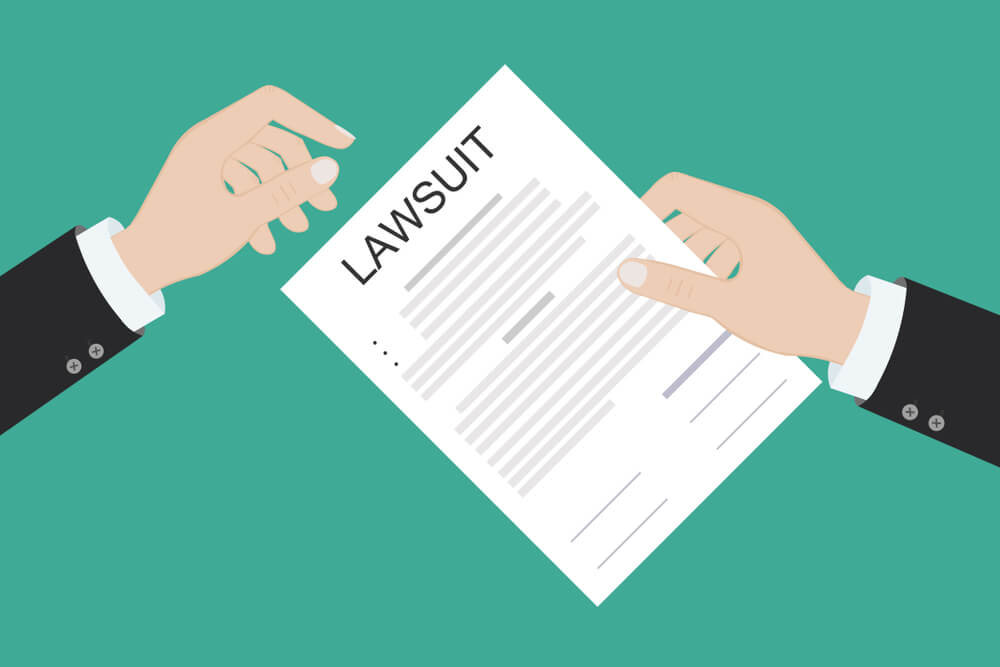As large brands have dwindled in recent years, there has been a veritable upsurge in the number of small businesses that have popped up to fill the void they’ve left behind. These small businesses range from cafes, specialist food stores, niche retail, and artisanal or equipment stores, to other areas of the business world, including consultancy, finances and accounting – and the sector continues to grow, particularly in the wake of the Covid-19 outbreak.
There are many small businesses that have fallen foul of customer expectations, staff grudges, and big corporations, experiencing lawsuits for which they’ve been unprepared; in some cases, such lawsuits have caused small businesses to waste money on rebranding or other costs, or have resulted in them shutting down entirely.
Naturally, then, to have a lawsuit filed is the stuff of nightmares for small business owners: it will cost an extortionate amount of money and time to deal with and, at worst, it can cost owners their dream business. It’s perfectly understandable that such a situation would result in intense feelings of fear, indignation, and confusion but, despite this, it’s vital to maintain your cool and think of your business’s reputation.
Preparation: The Importance of Insurance
First of all, it’s vital not to underestimate the importance of being prepared for every eventuality when opening a small business – you never know what the future may bring, and insuring yourself against a range of possibilities could save your business in future.
Prior to getting started, every small business owner should invest in some form of insurance to protect against any additional costs that may be incurred as a result of lawsuits, damage, or theft, to name but a few. While it’s not always the case that insurance will cover litigation costs, general liability insurance is often the first port of call for small business owners when defending against lawsuits, with providers such as Next Insurance specializing in helping small business owners defend themselves against lawsuits that involve injury or property damage accrued at said business and false advertising.
With this insurance, it’s possible to cover costs including attorney and settlement fees, while also potentially saving your small business from complete ruin, which is why it should never be disregarded or underestimated.
Review Your Case with an Attorney
Common lawsuits experienced by many small businesses consist of copyright infringement, contract breaches, workplace accidents, and discrimination. In such a case, rather than respond out of anger or confusion (anything you say or do with regards to the other party can be used against you in the courtroom), you will fare much better if you consult an experienced attorney who specializes in business to look through the specific details of your case with you. They can help you to identify any missing or incorrect details listed in the suit papers, as this may enable you to move to dismiss the case. If all the information is correct, they can help you to identify all of the documentation and evidence related to the suit, which will help you to remain clear-headed and organized.
Consider How to Respond and Proceed
Once a lawsuit has been filed, you typically have 30 days to respond to it in writing, outlining how you are going to respond and proceed. At this point, it would be beneficial to sit down with your defense lawyer and discuss with them each element of the suit and the best way forward – in some cases, you may simply be better off to settle the dispute for a nominal settlement fee or, if possible, in a non-monetary way, and instead salvage your business’s reputation.
Should this not be a possibility, you will need to ascertain the best way to move forward, identifying the pros and cons with an experienced attorney – although it’s important to recognize that this decision process may be heavily impacted by your insurance cover.
Regardless, whichever way you choose to respond to the lawsuit, your best bet is to have an attorney check through your written response prior to sending it. Remember, you will usually have around 30 days to respond and, if you fail to do so in the allotted timeframe, the plaintiff will automatically win the case.
It should go without saying that finding the best attorney you can afford, and who has an abundance of experience in dealing with small business lawsuits, is going to be the most beneficial for you and your business, but you would also do well to remember that you are more likely to succeed in the litigation process if you are completely transparent, promptly reply to invoices, ask questions as and when they arise, and remain focused on your business. The process may be long and arduous but, if you follow these steps and keep your head, you will still have a business at the end.


